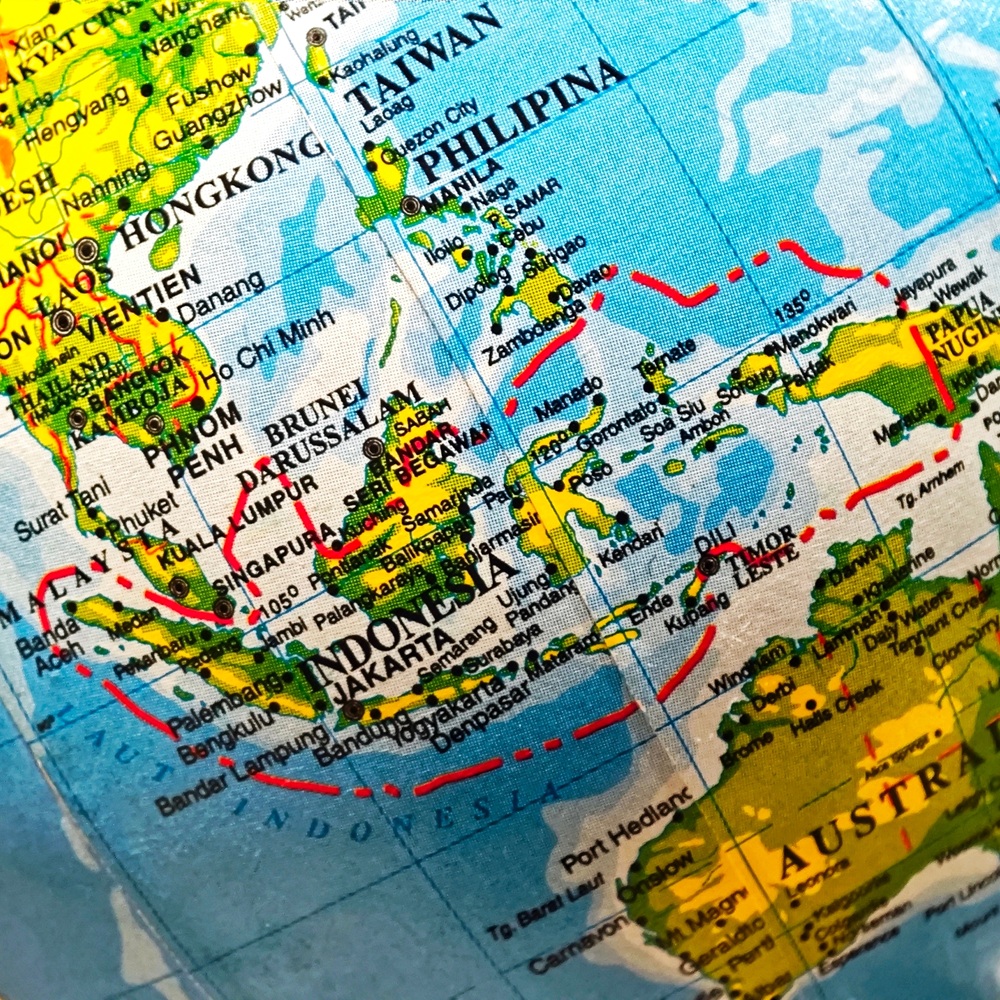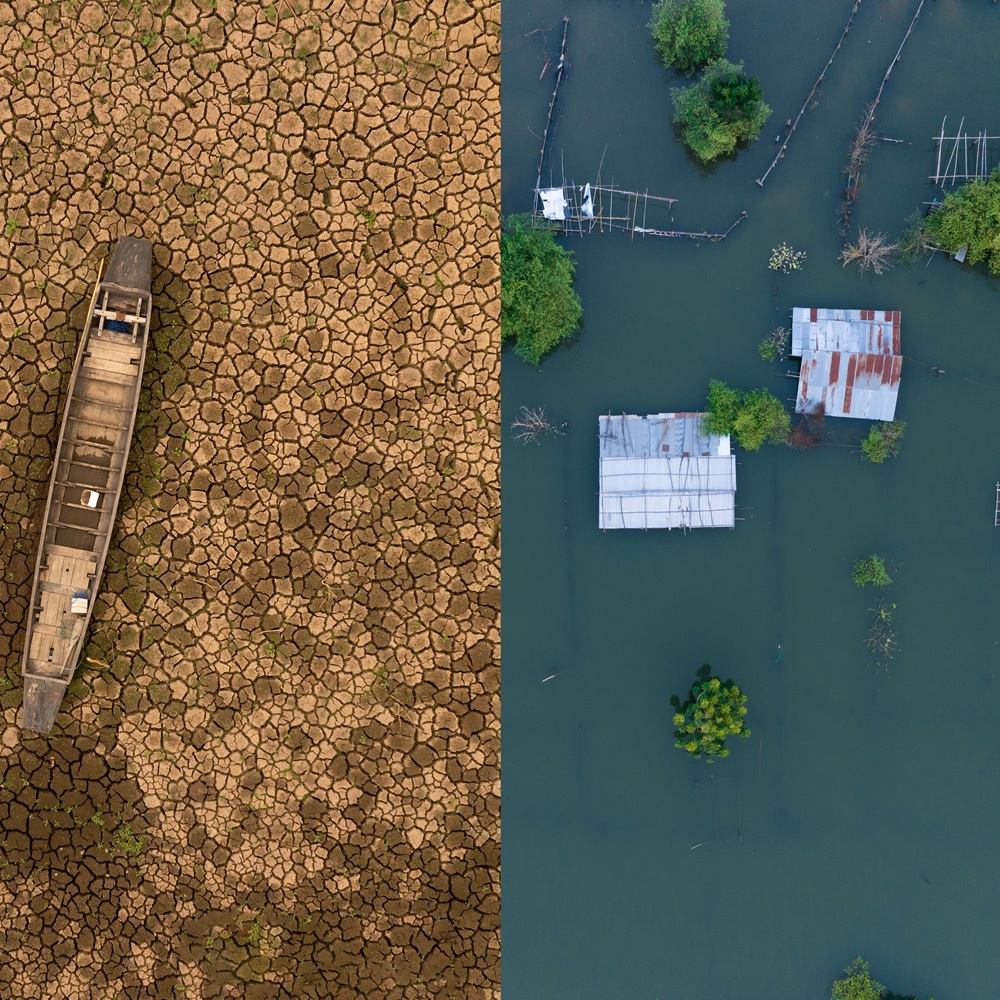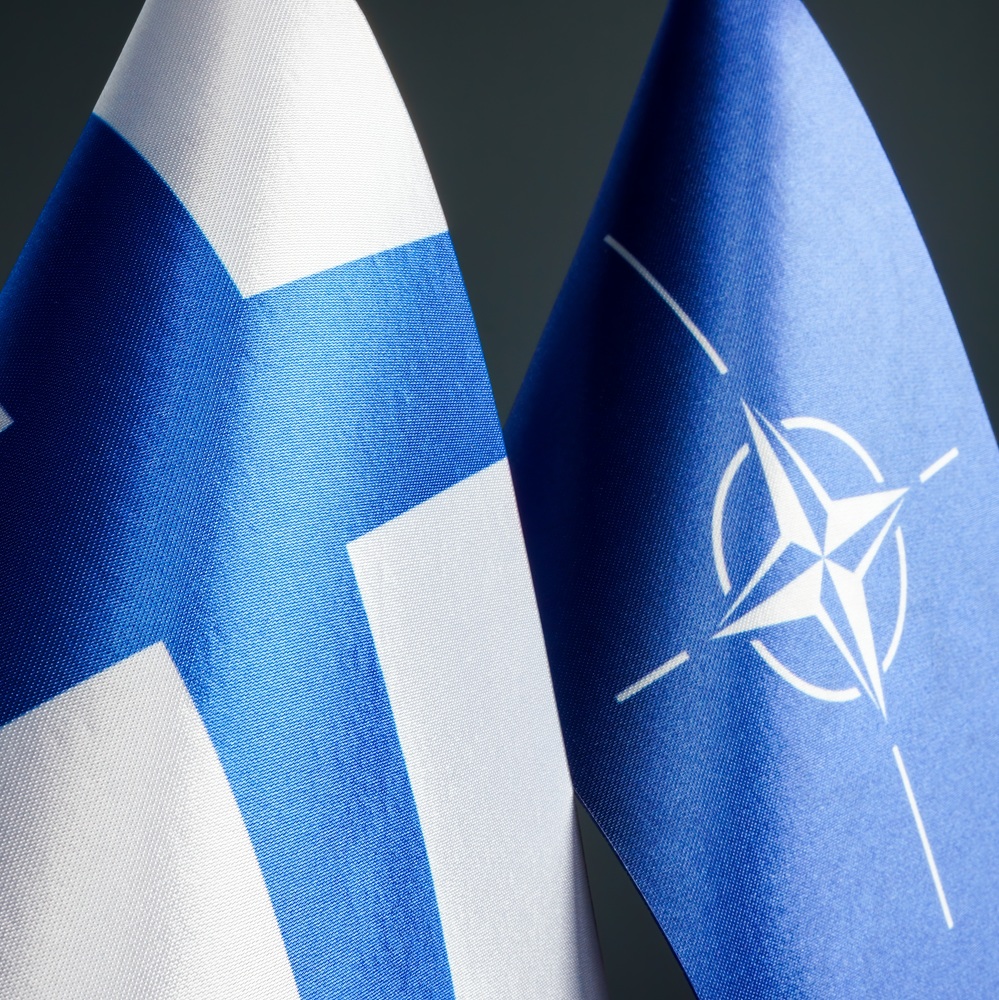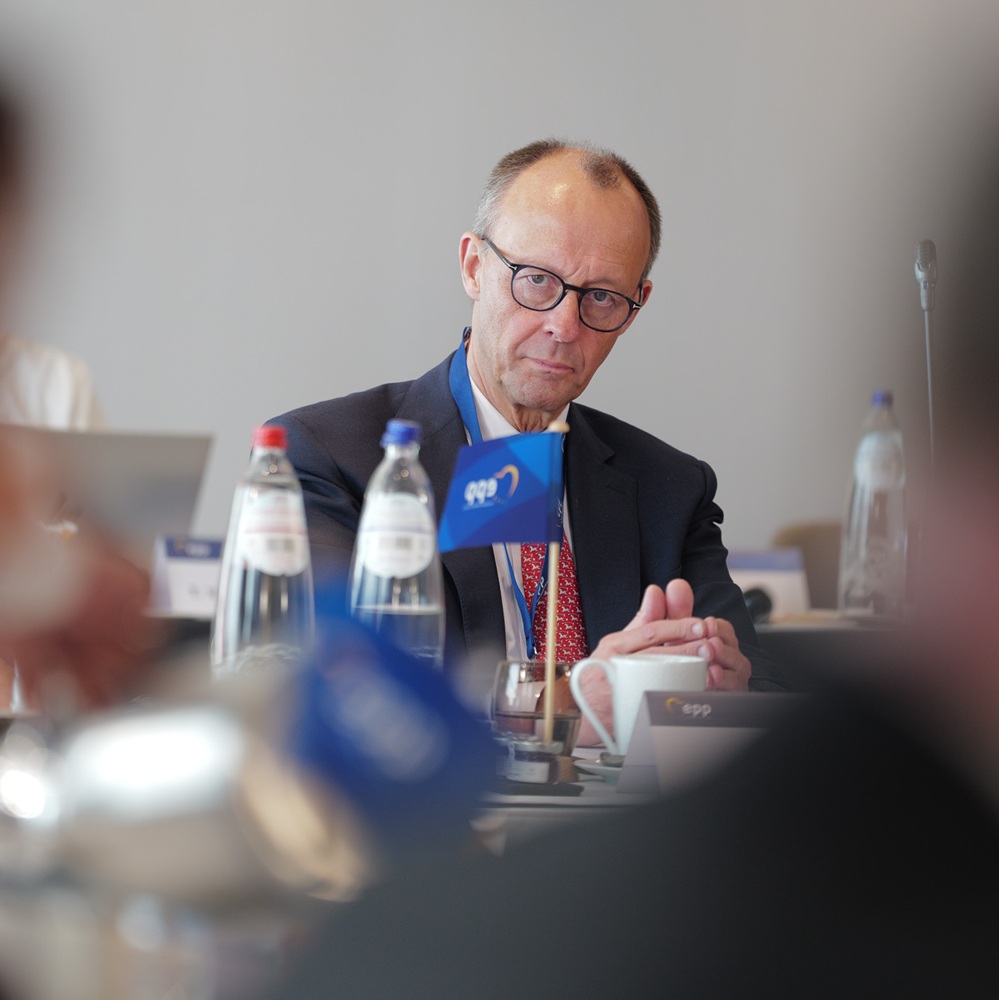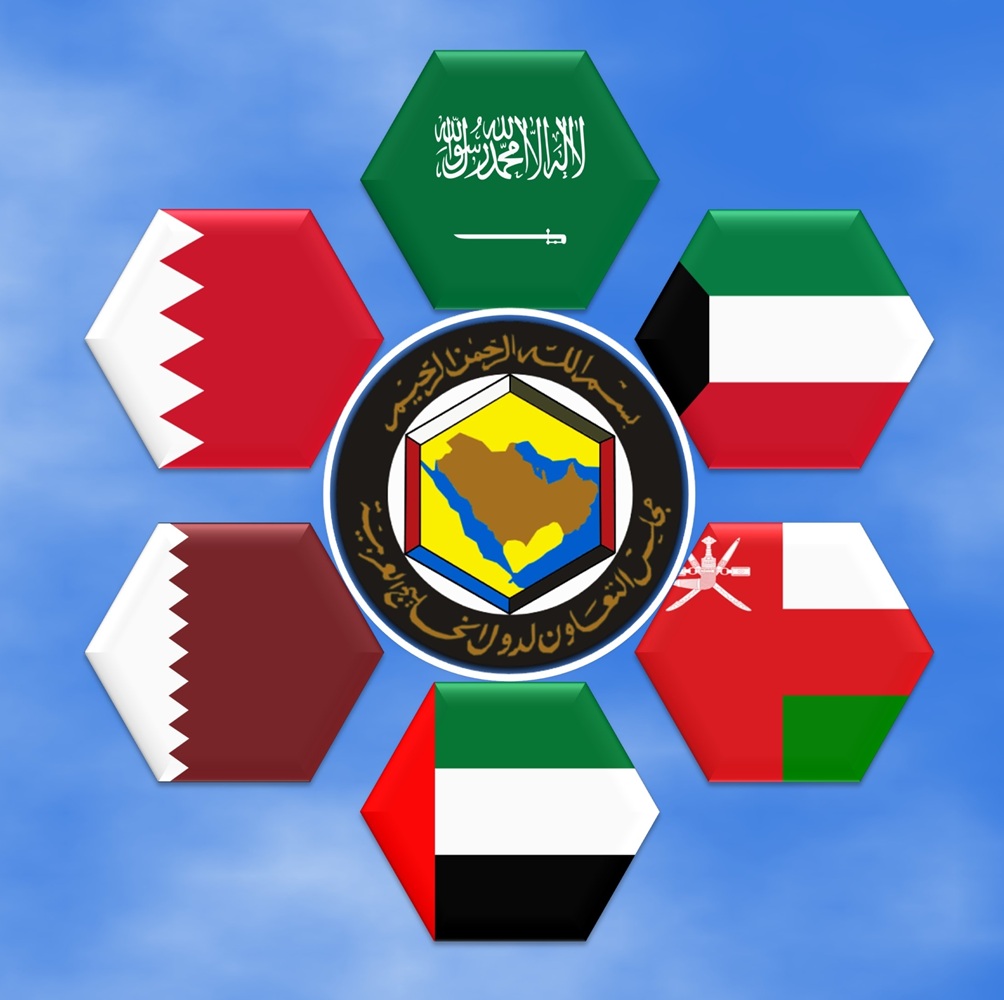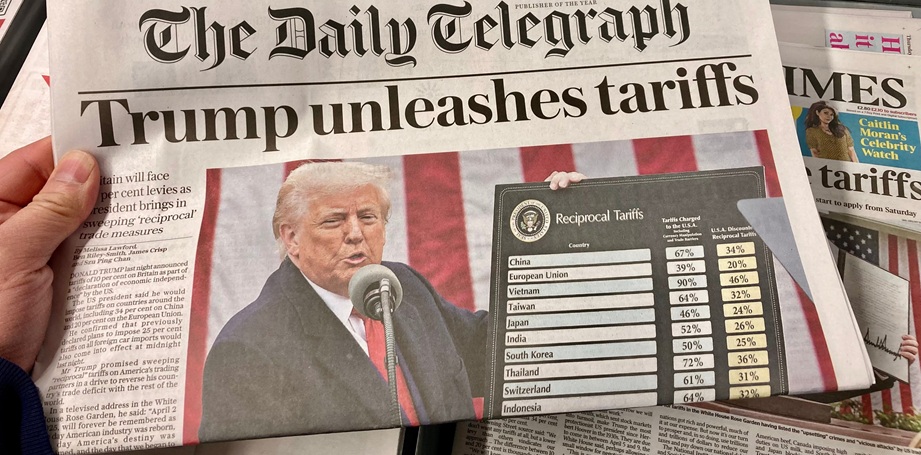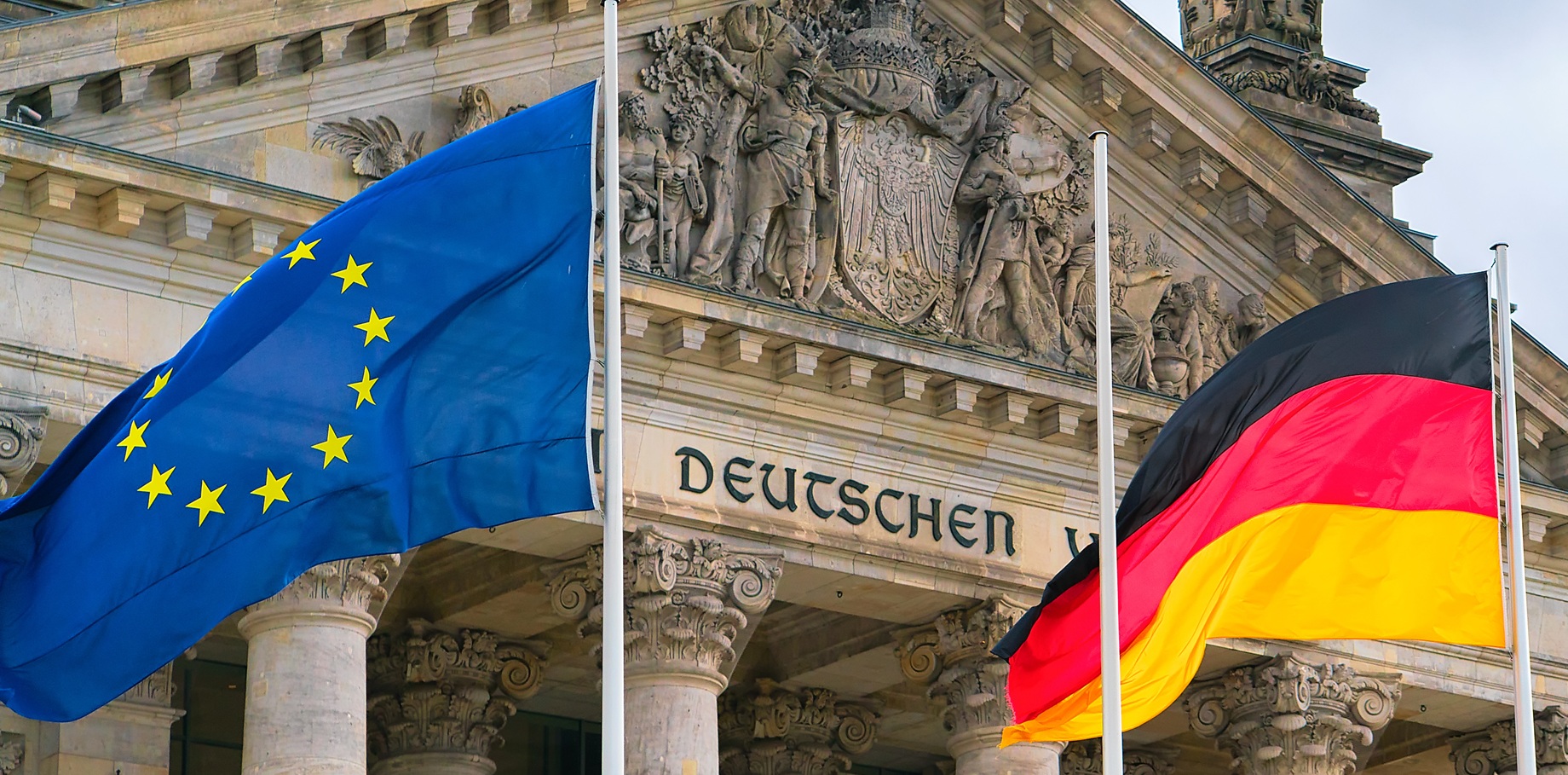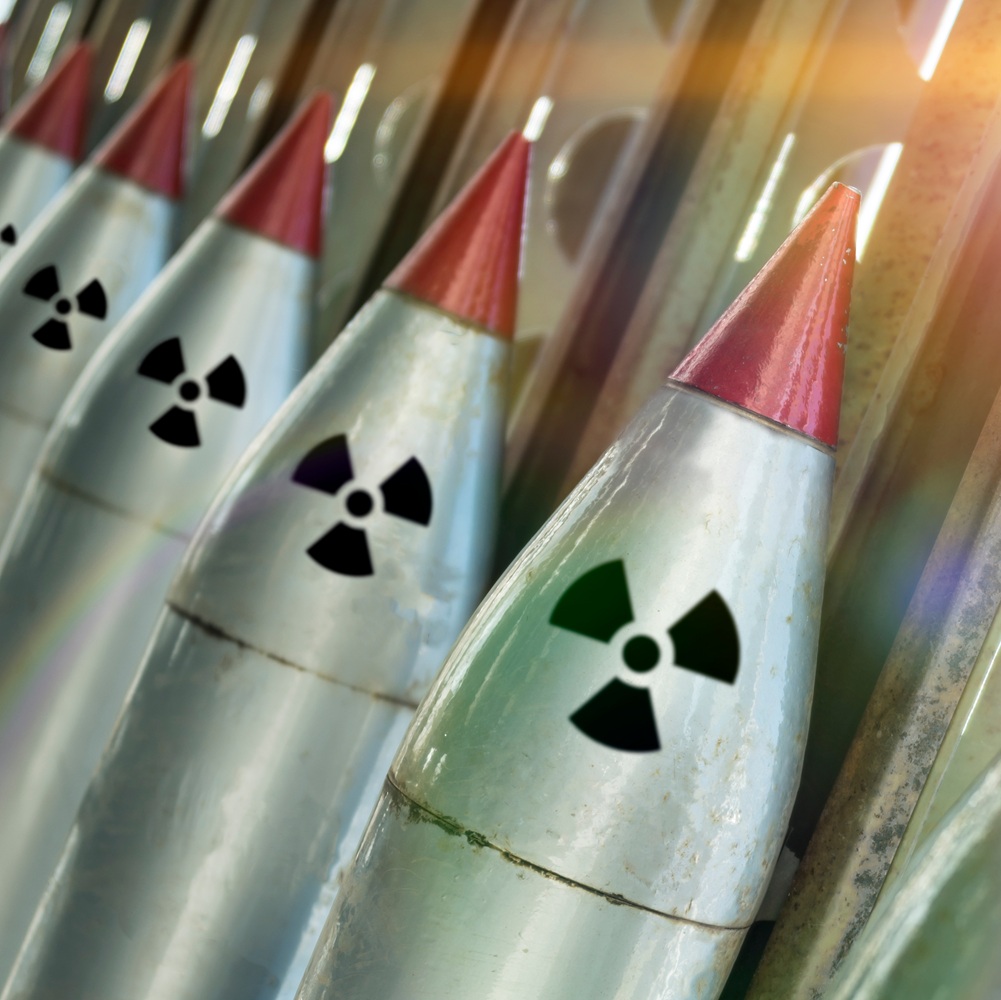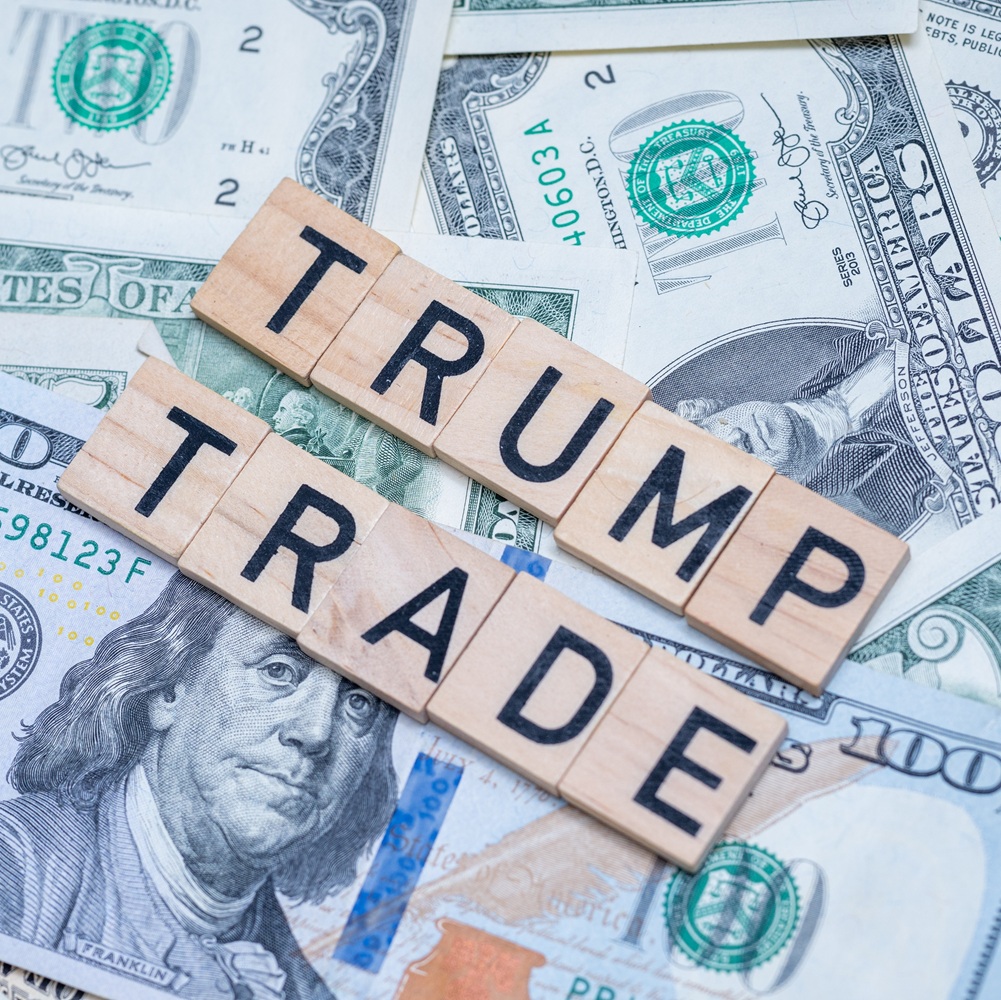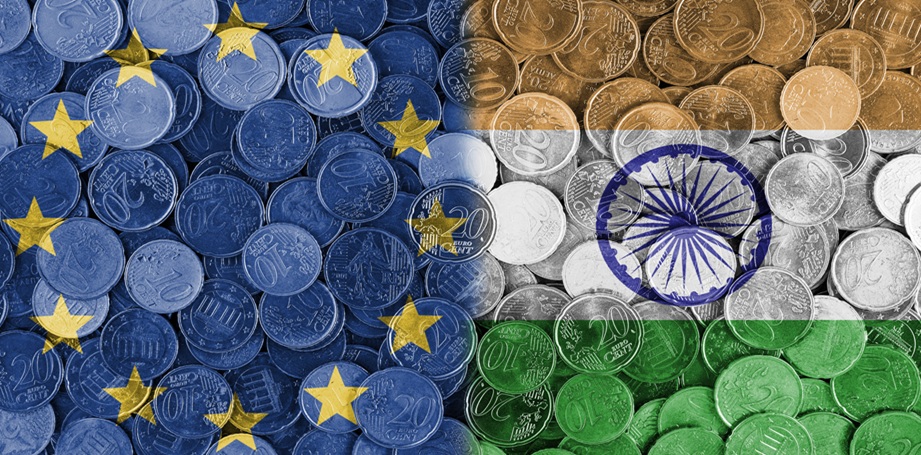
EU–India Free Trade Agreement and its Possible Economic and Geopolitical Ramifications.
by Krzysztof Sliwinski
Abstract The EU-India–Trade Agreement (FTA) negotiations, relaunched in 2022 after a nine-year hiatus, represent a significant step towards deepening economic and geopolitical ties between the European Union (EU) and India. The agreement, with its potential to eliminate tariffs, reduce non-tariff barriers, and enhance market access, particularly in services such as telecommunications, could substantially increase trade volume between the two entities, offering promising economic prospects. By creating a combined market of over 1.5 billion people, the FTA offers significant economic opportunities in sectors such as chemicals, machinery, and transport equipment. More importantly, it serves as a geopolitical tool aligned with the EU’s Indo-Pacific strategy, aiming to strengthen partnerships with like-minded democracies and potentially counterbalance China’s increasing influence, reassuring them about its geopolitical implications. Therefore, this study examines the potential economic and geopolitical opportunities and challenges associated with the EU-India FTA. It concludes that, perhaps unsurprisingly, much depends on the foreign and security policies of great powers such as the US, China, and Russia. Key Words: EU, India, Free Trade Area, Geopolitics Introduction Negotiations regarding the EU-India Free Trade Agreement (FTA) were initially launched in 2007. The talks were suspended in 2013 due to a gap in ambition and resumed after a nine-year pause with a formal relaunch on June 17, 2022, announced by Union Minister Piyush Goyal and European Commission Executive Vice-President Valdis Dombrovskis in Brussels.[i] This relaunch also included separate negotiations for an Investment Protection Agreement (IPA) and an Agreement on Geographical Indications (GIs), reflecting a broader agenda to enhance bilateral economic relations. The EU is India's largest trading partner, accounting for €124 billion in goods trade by 2023 (12.2% of the total Indian trade). India is the EU’s ninth-largest trading partner, representing 2.2% of the total trade in goods. Trade in services reached €59.7 billion in 2023, nearly double the 2020 level, with a significant portion being digital services, highlighting the growing economic interdependence.[ii] *Data acquired from the European Commission at: https://policy.trade.ec.europa.eu/eu-trade-relationships-country-and-region/countries-and-regions/india_en Negotiation Rounds and Progress Since the relaunch, ten rounds of negotiations have been conducted, with the following timeline detailing key developments: · Acquired through Grok. Prompt: What is the latest on the EU – India FTA Negotiations? At: https://x.com/i/grok?conversation=1922705918707265888 (14 May 2025) What is so important regarding FTAs? Free Trade Areas (FTAs) have become the cornerstone of international trade policy by reshaping global economic landscapes and geopolitical dynamics. These agreements aim to reduce trade barriers and foster economic cooperation among member states; however, their implications extend far beyond mere economic exchanges. Economic Consequences of Free Trade Areas One of the primary economic consequences of FTAs is the creation of new trade opportunities among the member states. By reducing tariffs and non-tariff barriers, FTAs encourage specialisation and efficiency and increase trade volumes. For instance, the African Continental Free Trade Area (AfCFTA) is expected to boost intra-African trade by creating a single market for goods and services that can unlock regional value chains and enhance economic integration.[i] Similarly, the ASEAN-China Free Trade Area (ACFTA) has expanded trade between Indonesia and China, although the benefits may be asymmetric, with Indonesia's imports growing faster than exports.[ii] However, FTAs can also lead to trade diversion, in which member states import goods at the expense of non-member countries. This phenomenon can harm non-members by reducing market access and undermining global trade liberalisation efforts.[iii] For example, the Trans-Pacific Partnership (TPP), which never entered into force,[iv] and the Transatlantic Trade and Investment Partnership (TTIP), which shared the same fate, were criticised for potentially marginalising non-member states and creating a fragmented global trade system.[v] FTAs often attract foreign direct investment (FDI) by creating more integrated markets. For instance, the Regional Comprehensive Economic Partnership (RCEP) has stimulated FDI inflows into member states such as Japan, Australia, and New Zealand, contributing to GDP growth.[vi] Similarly, establishing Free Trade Zones (FTZs) in China has promoted financial employment and industrial upgrading, particularly in the middle and western regions, balancing regional development.[vii] However, the benefits of FTAs are not always distributed evenly. Some studies suggest that while FTAs may boost economic growth for member states, non-members may experience adverse impacts such as reduced trade volumes and deteriorating terms of trade.[viii] Geopolitical Consequences of Free Trade Areas FTAs often serve as tools for geopolitical influence, allowing powerful states to shape their global economic order. For example, the TTIP and TPP were partly designed to counterbalance China's rising economic influence and establish new trade standards.[ix] Similarly, the RCEP has reinforced China's economic leadership in Asia, while the United States–Mexico–Canada Agreement (USMCA) has allowed the United States to maintain its influence in North America.[x] For smaller countries like Vietnam, FTAs can enhance international recognition and strategic balancing between major powers, contribute to regional integration and stability, influence internal political legitimacy and power dynamics, and provide tools to manage geopolitical risks and external shocks. FTAs, especially New Generation Free Trade Agreements (NGFTAs) such as the EU-Vietnam Free Trade Agreement (EVFTA), act as economic instruments and geopolitical tools that shape Vietnam's global and regional order position.[xi] The geopolitical implications of FTAs are evident in their impact on international trade governance. The proliferation of mega-regional trade agreements has challenged the multilateral trading system under the World Trade Organization (WTO), creating a fragmented trade landscape.[xii] This shift has raised concerns about the marginalisation of developing countries and the erosion of global trade rules. FTAs can also mitigate interstate conflict by increasing war costs. For instance, the African Continental Free Trade Area (AfCFTA) catalyses regional peace, fostering economic interdependence and reducing the likelihood of conflict.[xiii] Similarly, the ASEAN-China Free Trade Area (ACFTA) has strengthened economic ties between Indonesia and China, reducing potential geopolitical tensions in the region.[xiv] FTAs are not always effective in preventing conflict. In some cases, they may exacerbate tensions by creating unequal benefits or excluding certain states. For example, the TPP and TTIP have been criticised for their exclusionary nature, which may have contributed to trade tensions between member and non-member states.[xv] FTAs often serve as building blocks for broader regional integrations. For instance, the EU began a series of FTAs and customs unions before evolving into a deeply integrated economic and political bloc. Similarly, AfCFTA is part of a broader vision for African economic integration, aiming to create a single market and customs union. The proliferation of FTAs has also raised concerns regarding the future of multilateralism. The Doha Round of WTO negotiations has stalled, and the rise of mega-regional trade agreements has further fragmented the global trade system.[xvi] This has led to calls for a more inclusive and equitable approach to trade governance that ensures that developing countries are not left behind.Free trade has profound economic and geopolitical consequences. It shapes global trade patterns, influences regional stability, and affects the distribution of wealth and power. Although FTAs offer significant economic growth and integration opportunities, they also pose inequality, exclusion, and sustainability challenges. EU – India FTA Opportunities Economic The potential Free Trade Agreement (FTA) between the EU and India presents significant economic opportunities for the EU driven by eliminating trade barriers, increased market access, and deeper economic integration. First, the services sector is a critical area where the EU can benefit significantly from an FTA with India. The EU's services exports to India could more than double, while India's services exports to the EU would increase by approximately 50%.[xvii] This growth is attributed to reduced trade barriers and the liberalisation of sectors such as telecommunications, which has been identified as a key area for reform. Arguably, half of the predicted export expansion is driven by reforms to domestic regulations, particularly in the telecommunications sector, which could further enhance the EU's competitive position in the Indian market. The FTA is expected to eliminate tariffs and reduce non-tariff barriers, creating a more level-playing field for the EU businesses in India. The FTA of EU-Indian trade could approximately double, particularly in business services.[xviii] This liberalisation would increase trade volumes and lead to structural changes in both economies, with the EU potentially gaining a competitive advantage in high-value-added sectors. The FTA would create a combined market of over 1.5 billion people, enabling the EU and India to reap the benefits of economies of scale. This integration would be particularly beneficial for manufactured goods, such as chemicals, machinery, and transport equipment, where intra-industry trade could lead to efficiency gains and cost reductions. These economies of scale could also give the EU a competitive edge in global markets, helping to stimulate economic growth and job creation.[xix] Geopolitics and security The EU–India FTA is an economic arrangement and a geopolitical tool that aligns with the EU's broader objectives in the Indo-Pacific region. The EU's geopolitical position and security interests are central to understanding the opportunities and challenges presented by the FTA. The EU's engagement with India through the FTA is deeply rooted in its Indo-Pacific strategy, formally launched in 2021. This reflects the EU's ambition to strengthen its presence in the Indo-Pacific region, an area increasingly characterised by multipolar competition, particularly between the United States and China. The EU's strategy is driven by recognising that the Indo-Pacific is the "pivotal region" of the 21st century, and its economic and security dynamics will shape global governance.[xx] While the EU's new strategy does not take a confrontational stance towards China, it reflects increased concerns about Beijing’s growing assertiveness and the implications of the US-China rivalry for Europe. The strategy advocates for a multifaceted engagement with China, encouraging cooperation and protecting EU interests and values. An FTA with India is a key component of the EU’s strategy. India's growing economic and political influence in the Indo-Pacific region makes it a critical partner for the EU. The EU views India as a like-minded democracy that shares concerns about China's assertiveness and the need for a rule-based international order. This alignment creates a unique opportunity for the EU to deepen its strategic partnership with India by leveraging economic cooperation to strengthen geopolitics.[xxi] The EU's engagement with India is part of its broader effort to strengthen security cooperation in the Indo-Pacific region. The EU and India share concerns regarding maritime security, cybersecurity, and the challenges posed by China's growing influence in the region. The FTA can serve as a foundation for deeper collaboration on security issues such as counterterrorism, non-proliferation, and disaster management.[xxii] The EU's security strategy in the Indo-Pacific also emphasises the importance of upholding a rule-based international order. An FTA with India can help promote this objective by reinforcing shared norms and standards in trade, investment, and intellectual property rights. This alignment is critical in China's increasing assertiveness and need for like-minded partners to counterbalance its influence.[xxiii] The EU's approach to an FTA is also shaped by its identity as a normative power. The EU has historically sought to promote its values, such as human rights, environmental sustainability, and social justice, through trade agreements. The FTA with India allows for advancing these values by incorporating labour rights, environmental protection, and sustainable development clauses.[xxiv] However, its geopolitical and economic realities constrain the EU’s ability to promote its normative agenda. The EU must be pragmatic and balance its value-based approach with the need to secure concessions on market access and other economic interests. This tension is evident in EU trade policy, where strategic and economic interests often precede normative objectives.[xxv] EU – India FTA Challenges Existing literature on the challenges the EU–India FTA poses is sparse. Generally, scholars admit that FTA, especially those negotiated by the EU, can face varying degrees of politicisation and contestation from civil society, as seen with TTIP and CETA.[xxvi] This finding suggests the potential for public opposition to new FTAs. In addition, the EU often pursues ambitious agreements beyond tariff reductions, including behind-the-border measures and regulatory cooperation.[xxvii] While FTAs aim to boost trade, their impact can be uneven. Some agreements have failed to entirely realise the expected benefits of trade and investment flows.[xxviii] There are also concerns that FTAs may reduce policy space for developing country partners to pursue alternative development strategies.[xxix] Economic However, several economic challenges regarding the EU-India negotiated FTA can be easily identified. To begin, the talks were stuck for nearly two decades, mainly because the EU and India had different goals. The EU wants deeper integration, including investment and competition policies, whereas India prefers a more limited agreement. This has led to repeated delays, and little progress has been made. Specifically, market access has been a point of contention, especially in sensitive sectors such as agriculture and automobiles. India imposes high tariffs on EU cars (60-100%) compared to the EU's 6.5% on Indian cars, and it protects its agricultural sector, making it difficult for EU farmers to enter the market. The EU also wanted India to open up services such as accountancy and legal work, but India resisted due to fears of competition.[xxx] The EU has strict rules, such as the Carbon Border Adjustment Mechanism (CBAM) and sustainability directives, which India sees as overregulatory and burdensome. This creates friction, as India worries these rules could act as trade barriers. There are also issues with intellectual property rights, where the EU wants stronger protection, but India resists keeping generic drugs affordable.[xxxi] Finally, the EU has invested heavily in India, around €100 billion by 2020, but India's decision to end bilateral investment treaties in 2016 and stalled talks on investment protection since 2023 creates uncertainty. There is also a trust deficit, with India fearing EU regulatory overreach and the EU worrying about compliance.[xxxii] Geopolitics and security As mentioned above, the EU's engagement with India is part of its broader strategy to deepen ties with the Indo-Pacific region. This strategy is driven by the need to counterbalance rising powers like China and enhance its global influence. The EU's Indo-Pacific Strategy and the Global Gateway Initiative reflect this ambition, emphasising the importance of strategic partnerships with like-minded actors such as India.[xxxiii] China's growing economic and military presence in the Indo-Pacific region poses a significant challenge for the EU and India. The EU has expressed concerns about China's assertive behaviour in the South China Sea and its Belt and Road Initiative (BRI), which is seen as a tool for expanding Chinese influence.[xxxiv] The EU and India share a common interest in promoting rules-based international order and countering China's increasing dominance. This alignment has been a key driver of their strategic partnership, with both sides seeking to enhance trade, technology, and security cooperation.[xxxv] The Russia-Ukraine war has further complicated the geopolitical landscape, with significant implications for EU-India relations. While the EU has strongly supported Ukraine, India has maintained a more neutral stance by prioritising its strategic partnership with Russia.[xxxvi] This divergence in approach has created tensions, particularly in terms of energy security and sanctions, which could impact FTA negotiations. The EU and India face various traditional security challenges that affect their strategic partnerships and FTA negotiations. China's military modernisation and assertive behaviour in the Indo-Pacific region have heightened security concerns for the EU and India. The EU has expressed support for India's role in maintaining regional stability, particularly in China's actions in the South China Sea and along the India-China border.[xxxvii] The EU and India are also concerned about regional instability, including Myanmar and the Korean Peninsula. These issues underscore the need for enhanced security cooperation between the two partners.[xxxviii] As for non-traditional security challenges, climate change and energy security are key areas of cooperation between the EU and India. The EU has emphasised the importance of transitioning to renewable energy sources, while India has sought to balance its energy needs with environmental concerns.[xxxix] In addition, the increasing importance of digital technologies has highlighted the need for cooperation in cybersecurity and data protection areas. The EU and India are interested in collaborating with digital infrastructure and innovation.[xl] Conclusion According to the European Parliament, “India was among the first countries to establish diplomatic relations with the European Economic Community in 1962. With the formal establishment of the EU in 1993, India signed a Cooperation Agreement in 1994, which opened the door to broader political interaction between the two. […] The relationship was upgraded to a 'Strategic Partnership' during The Hague's 5th India-EU Summit in 2004. From 1980 to 2005, EU-India trade grew from €4.4 billion to €40 billion. The EU was India's largest trading partner at the time, accounting for 22.4% of Indian exports and 20.8% of imports”.[xli] Despite these incentives, India's historical emphasis on autonomy and self-reliance can sometimes clash with the EU's multilateral approach.[xlii] Further, India's complex relationship with Russia, particularly its continued reliance on Russian defence technology, presents a challenge for closer EU-India security cooperation.[xliii] Finally, although the EU and India share concerns about China's growing influence, their strategies for managing this challenge may differ. These issues, if left unaddressed, could limit the potential for a deeper and more strategic partnership between the EU and India.[xliv] Time will typically show how much the FTA between the EU and India will facilitate closer security and geopolitical links. Much depends on great powers' foreign and security policies, such as the US, China, and Russia. Their intricate games make the geopolitical chessboard fascinating, if not difficult to predict. REFERENCES [1] EU and India kick-start ambitious trade agenda. (2022, June 17). Directorate-General for Trade and Economics. https://policy.trade.ec.europa.eu/news/eu-and-india-kick-start-ambitious-trade-agenda-2022-06-17_en[2] EU trade relations with India. Facts, figures and latest developments. (n.d.). European Commission. https://policy.trade.ec.europa.eu/eu-trade-relationships-country-and-region/countries-and-regions/india_en[3] Joseph, J. E. (2024). Critical factors to consider in the trade–security nexus of the African Continental Free Trade Area: A catalyst for establishing peace. African Security Review https://doi.org/10.1080/10246029.2024.2303459[4] Kurniawan, K. (2011). The Economic, Environmental, and Geopolitical Impacts of ASEAN-China Free Trade Area (ACFTA) on Indonesia. https://www.researchgate.net/publication/349858225_THE_IMPACT_OF_ASEAN-CHINA_FREE_TRADE_AREA_ACFTA_AGREEMENT_ON_INDONESIA'S_MAJOR_PLANTATION_EXPORT_COMMODITIES[5] Pasara, M. T., & Dunga, S. H. (2023). Impact of Regional Trade Agreements on Economic Growth: An Econometric Analysis. https://doi.org/10.1007/978-3-031-30541-2_6[6] Following the U.S. withdrawal, the remaining 11 nations (without the U.S.) negotiated a revised agreement called the CPTPP, which is now in force.[7] Tellis, A. J. (2014). The geopolitics of the TTIP and the TPP. Adelphi Series. https://doi.org/10.1080/19445571.2014.1019720[8] Zhang, Q., & Wang, Q. (2024). Impact assessment of multilateral trade agreements on regional economic growth based on quantitative model optimization. Applied Mathematics and Nonlinear Sciences. https://doi.org/10.2478/amns-2024-2831[9] Chen, Y., & Wu, S. (2024). Can the Founding of Free Trade Zones Lead to Financial Employment Boom? --Based on Multi-period Double-difference model. Highlights in Business, Economics and Management. https://doi.org/10.54097/tfrq5c45[10] Zhang, Q., & Wang, Q. (2024). Impact assessment of multilateral trade agreements on regional economic growth based on quantitative model optimization. Applied Mathematics and Nonlinear Sciences. https://doi.org/10.2478/amns-2024-2831[11] Tellis, A. J. (2014). The geopolitics of the TTIP and the TPP. Adelphi Series. https://doi.org/10.1080/19445571.2014.1019720[12] Zhang, Q., & Wang, Q. (2024). Impact assessment of multilateral trade agreements on regional economic growth based on quantitative model optimization. Applied Mathematics and Nonlinear Sciences. https://doi.org/10.2478/amns-2024-2831[13] Boguszewski, M. (2022). Political economy of domestic influences of free trade agreements: A case study of the agricultural sector in Vietnam (Doctoral dissertation, The Education University of Hong Kong).[14] Palit, A. (2017). Mega-regional trade agreements and non-participating developing countries: Differential impacts, challenges and policy options: Competition and Change. https://doi.org/10.1177/1024529417729324[15] Joseph, J. E. (2024). Critical factors to consider in the trade–security nexus of the African Continental Free Trade Area: A catalyst for establishing peace. African Security Review. https://doi.org/10.1080/10246029.2024.2303459[16] Kurniawan, K. (2011). The Economic, Environmental, and Geopolitical Impacts of ASEAN-China Free Trade Area (ACFTA) on Indonesia.[17] Tellis, A. J. (2014). The geopolitics of the TTIP and the TPP. Adelphi Series. https://doi.org/10.1080/19445571.2014.1019720[18] Palit, A. (2017). Mega-regional trade agreements and non-participating developing countries: Differential impacts, challenges and policy options: Competition and Change. https://doi.org/10.1177/1024529417729324[19] Nordås, H. K. (2023). Services in the India-EU free trade agreement. https://doi.org/10.1016/j.inteco.2023.100460[20] Felbermayr, G., Mitra, D., Aichele, R., & Gröschl, J. K. (2017). Europe and India: Relaunching a Troubled Trade Relationship. Research Papers in Economics.[21] Khorana, S., Perdikis, N., & Kerr, W. A. (2015). Global economies of scale in the EU-India trade agreement: are they the key to a return to economic growth? Asia Europe Journal, 13(1), 41–55. https://doi.org/10.1007/S10308-014-0404-8[22] Carteny, A., & Tosti Di Stefano, E. (2024). The EU and the Indo-Pacific: The path towards a comprehensive strategy. In The European Union in the Asia-Pacific: Rethinking Europe’s strategies and policies (pp. 406–428). Routledge. https://doi.org/10.4324/9781003336143-25[23] Kaura, V., & Singh, P. (2022). European Union’s Indo-Pacific Strategy: Policy Implications For India. Indian Journal of Public Administration, 68(4), 542–555. https://doi.org/10.1177/00195561221098175[24] Grgić, G. (2023). Ambition, meet reality: The European Union’s actorness in the Indo-Pacific. International Political Science Review. https://doi.org/10.1177/01925121231191275[25] Pugliese, G. (2024). The European Union and an “Indo-Pacific” Alignment. Asia-Pacific Review, 31(1), 17–44. https://doi.org/10.1080/13439006.2024.2334182[26] Christou, A., & Damro, C. (2024). Frames and Issue Linkage: EU Trade Policy in the Geoeconomic Turn. Journal of Common Market Studies. https://doi.org/10.1111/jcms.13598[27] Leeg, T. (2014). Normative Power Europe? The European Union in the Negotiations on a Free Trade Agreement with India. European Foreign Affairs Review, 19(3), 335–355. https://dialnet.unirioja.es/servlet/articulo?codigo=4834907[28] De Bièvre, D., & Poletti, A. (2020). Towards Explaining Varying Degrees of Politicization of EU Trade Agreement Negotiations. Politics and Governance, 8(1), 243–253. https://doi.org/10.17645/pag.v8i1.2686[29] Lakatos, C., & Nilsson, L. (2016). The EU-Korea FTA: anticipation, trade policy uncertainty and impact. Review of World Economics, 153(1), 179–198. https://doi.org/10.1007/s10290-016-0261-1[30] Mazyrin, V. M. (2025). The EAEU – Vietnam Free Trade Agreement: Expectations and Reality. Outlines of Global Transformations: Politics, Economics, Law, 17(3), 128–148. https://doi.org/10.31249/kgt/2024.03.07[31] Hurt, S. R. (2012). The EU–SADC Economic Partnership Agreement Negotiations: ‘locking in’ the neoliberal development model in southern Africa? Third World Quarterly, 33(3), 495–510. https://doi.org/10.1080/01436597.2012.657486[32] Khorana, S. (n.d.). The FTA: a strategic call for the EU and India? European Council on Foreign Relations, India’s Foreign Policy. https://ecfr.eu/special/what_does_india_think/analysis/the_fta_a_strategic_call_for_the_eu_and_india[33] Carbon Border Adjustment Mechanism. (n.d.). European Commission, Taxation and Customs Union. https://taxation-customs.ec.europa.eu/carbon-border-adjustment-mechanism_en[34] Mishra, A. R. (2015). India cancels EU trade talks over pharma ban. Mint. https://www.livemint.com/Politics/JtJwcwhXDZz4c01D9DGk5I/Govt-cancels-trade-negotiatorlevel-meet-with-EU.html[35] Reiterer, M. (2023). The Indo-Pacific taking centre-stage for the EU’s security policy. EuZ – Zeitschrift Für Europarecht. https://doi.org/10.36862/eiz-euz022[36] Singh, M. (2021). India, Europe and Connectivity: From Shared Views on BRI to Mutual Cooperation? (pp. 133–159). Palgrave Macmillan, Singapore. https://doi.org/10.1007/978-981-33-4608-6_6[37] Kugiel, P. (2021). From Destroyer to Preserver? The Evolution of India’s Position Towards the Liberal International Order and Its Significance for the EU–India Strategic Partnership (pp. 253–273). Springer, Cham. https://doi.org/10.1007/978-3-030-65044-5_12[38] Dominguez, R., & Sverdrup-Thygeson, B. (2021). The Role of External Powers in EU–Asia Security Relations (pp. 415–435). Palgrave Macmillan, Cham. https://doi.org/10.1007/978-3-030-69966-6_19[39] Reiterer, M. (2023). The Indo-Pacific taking centre-stage for the EU’s security policy. EuZ – Zeitschrift Für Europarecht. https://doi.org/10.36862/eiz-euz022[40] Kirchner, E. J. (2022). EU Security Alignments with the Asia-Pacific. Asian Affairs, 53(3), 542–560. https://doi.org/10.1080/03068374.2022.2082165[41] Singh, M. (2021). Multilateralism in a Changing Global Order: Prospects for India–EU Cooperation (pp. 275–290). Springer, Cham. https://doi.org/10.1007/978-3-030-65044-5_13[42] Aspengren, H. C., & Nordenstam, A. (2021). What Strategies Can Do for Strategic Partnerships: Lessons from the EU’s Strategy on India (pp. 67–85). Springer International Publishing. https://doi.org/10.1007/978-3-030-65044-5_4[43] Delivorias, A., & Mácsai, G. (2024). EU-India free trade agreement. In BRIEFING International Agreements in Progress. European Parliament. https://www.europarl.europa.eu/RegData/etudes/BRIE/2024/757588/EPRS_BRI(2024)757588_EN.pdf [44] Sinha, Aseema, and Jon P. Dorschner. 2009. “India: Rising Power or a Mere Revolution of Rising Expectations?” Polity 42 (1): 74. https://doi.org/10.1057/pol.2009.19.[45] Chandrasekar, Anunita. 2025. “It’s Time to Upgrade the EU-India Relationship.” https://www.cer.eu/insights/its-time-upgrade-eu-india-relationship.[46] Gare, Frédéric and Reuter Manisha. “Here be dragons: India-China relations and their consequences for Europe”. 25 May 2023. https://ecfr.eu/article/here-be-dragons-india-china-relations-and-their-consequences-for-europe/









